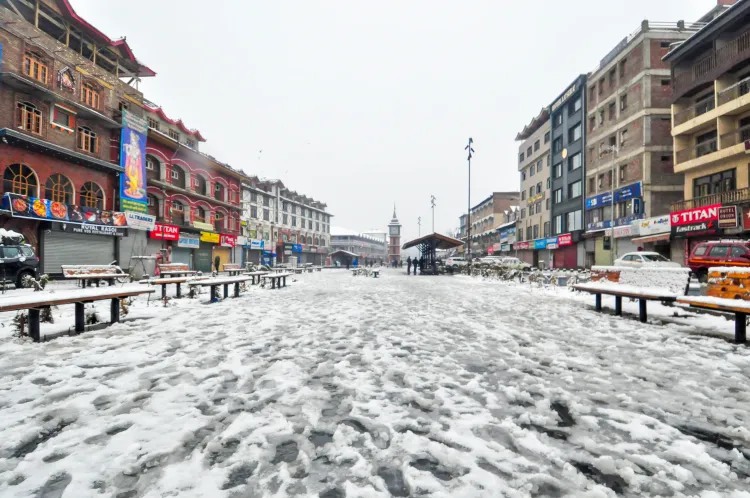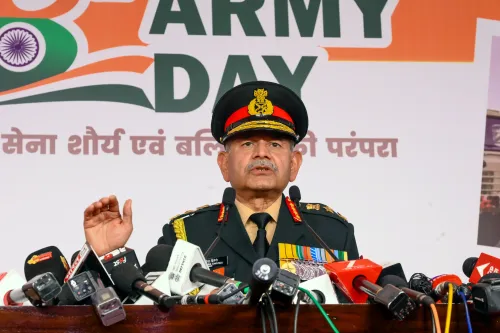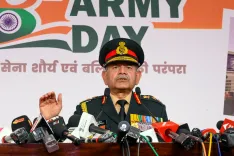Srinagar Experiences Frigid Temperatures of Minus 5.1 Degrees

Srinagar, Jan 13 (NationPress) The minimum temperature in Kashmir has fallen several degrees below the freezing mark on Monday, as a severe cold wave has impacted life across J&K.
The recorded temperature in Srinagar city was minus 5.1 degrees Celsius, while Gulmarg and Pahalgam experienced temperatures of minus 6.5 and minus 8.4 degrees respectively.
In contrast, Jammu city recorded a temperature of 7.2 degrees Celsius, with Katra at 6, Batote at 2.6, Banihal at minus 0.6, and Bhaderwah at minus 0.4 degrees.
A statement from the Meteorological (MeT) department indicated that the weather in J&K would remain predominantly clear and dry on January 13. The forecast for January 14 suggests it will be mainly cloudy but still dry. From January 15 to 16, expect generally cloudy conditions with light snow in isolated higher areas during the early hours of the 16th. From January 17 to 19, the weather is expected to remain cloudy with no significant changes until the 19th.
Tourists and travelers are advised to heed the guidance provided by the traffic department.
Meanwhile, residents of the Jammu division celebrated the ‘Lohri’ festival, a seasonal event that symbolizes the conclusion of winter. It is commonly believed that weather conditions improve significantly following the Lohri festival; however, the intense cold in the Valley persists for the 40-day period known locally as ‘Chillai Kalan’, which lasts until January 30.
This prolonged cold phase began on December 21 and continues until January 30. Health professionals recommend that individuals, particularly children and the elderly, limit their exposure to extreme cold, as it increases the risk of hypothermia and can lead to serious cardiovascular issues.
Due to electricity shortages in the Valley, many people revert to traditional means of warmth. The ‘Kangri’, an earthen firepot encased in a willow basket, is filled with embers and placed beneath the loose tweed overgarment known as the ‘Pheran’. The Pheran and Kangri remain essential to the locals, especially when modern heating solutions fall short.










